The Ultimate Guide to Holly

With its bright red berries and glossy, serrated green leaves, most people are familiar with Ilex aquifolium, better known as common holly. It’s a popular festive shrub or tree that can be cut for a variety of Christmas decorations, from wreaths and garlands to decorations for your mantelpiece. And with the right care and attention, cut holly can last several weeks. With our guide to Christmas flowers, you’ll discover everything you need to know about this iconic festive plant, from the different types to how to care for it.
Did you know?
- There are around 480 evergreen and deciduous types of holly, including climbing lianas, shrubs and trees.
- American and English holly look very similar, but the English holly is more commonly used in Christmas decorations.
- Holly is dioecious, which means that each holly plant is either female or male and needs to be grown near each other to produce berries. Those that produce berries are female.
- Holly has white flowers with four petals that bloom anytime between early spring and the start of summer, depending on the climate.
- Once insects pollinate the holly flowers on a female holly plant, they develop into red berries and often remain on the tree during winter.
- The bark and foliage of certain types of holly have long been used in herbalism, while holly leaves are made into a tea to treat measles, pneumonia, colds and flu.
- Holly berries, especially consumed in large quantities, are toxic to humans and most animals. However, they aren’t toxic for birds and are an important food source during the winter.
Holly meaning: what does holly symbolise?
For the Druids of the Celtic religion, holly was used to mark the winter solstice. The plant’s green, red and white colours represented luck and protection when hung over doorways. Christians would later adopt this tradition of hanging holly on doors. However, in Christianity, holly would be used to symbolise Christ’s crucifixion and as a metaphor for life after death. The thorny holly leaves, known as “Christ’s thorn”, and the red berries represent the crown of Christ and the blood he shed on the cross. At the same time, the evergreen leaves reflect Christ’s resurrection.
Holly types
The holly family of plants ranges from trees over 50 feet tall to low-growing ground cover and woody shrubs. Holly leaves can vary from hard and spiny to soft to touch, glossy green or a mixture of green and white. Most have flowers which are nicely scented but with varying coloured holly berries, including red, pink, black, yellow or white. Here are just a few varieties of holly found worldwide.
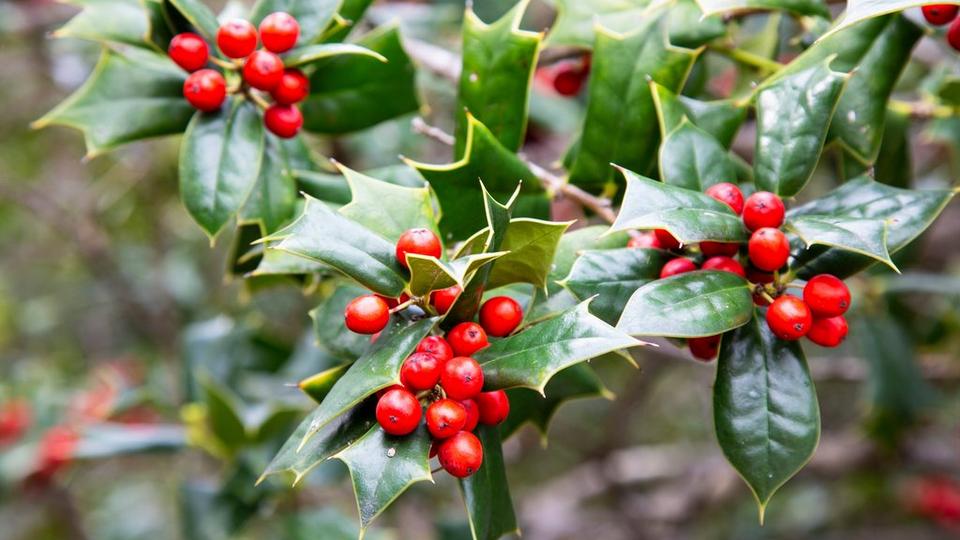
English Holly (Ilex aquifolium)
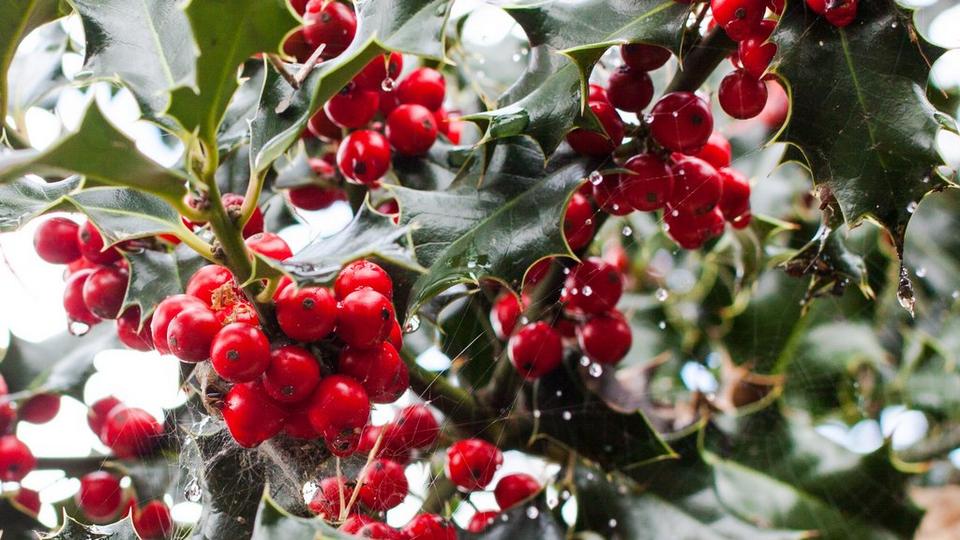
American Holly (Ilex opaca)
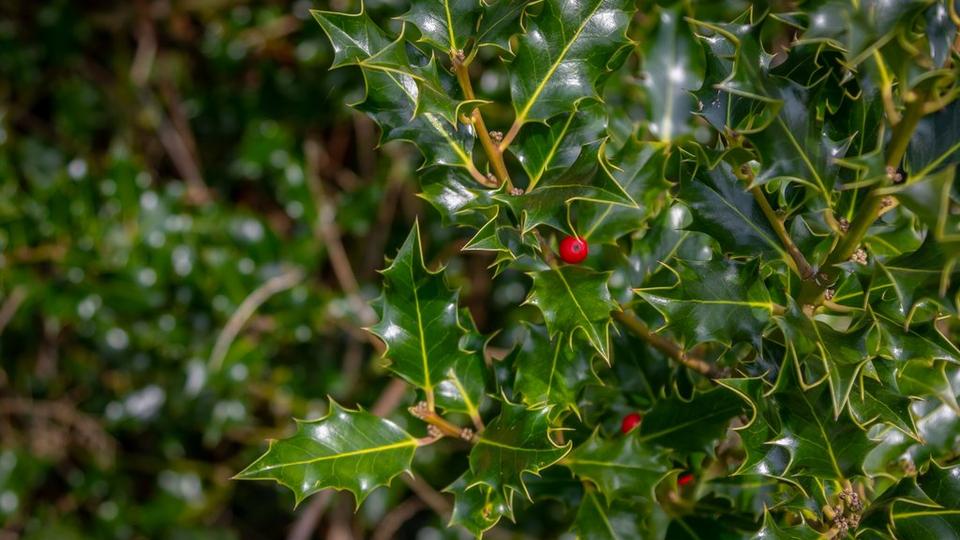
Argentea Marginata (Ilex aquifolium)
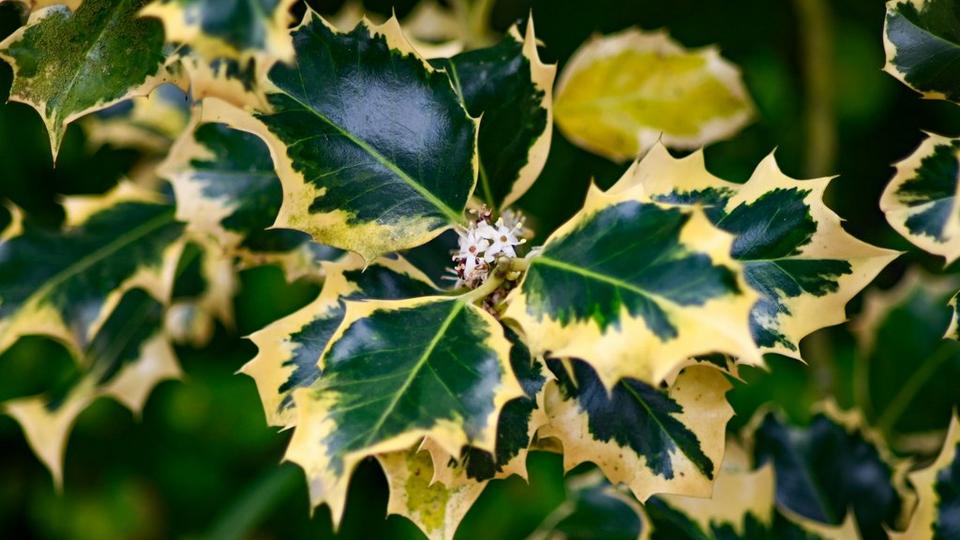
Silver Queen (Ilex aquifolium)
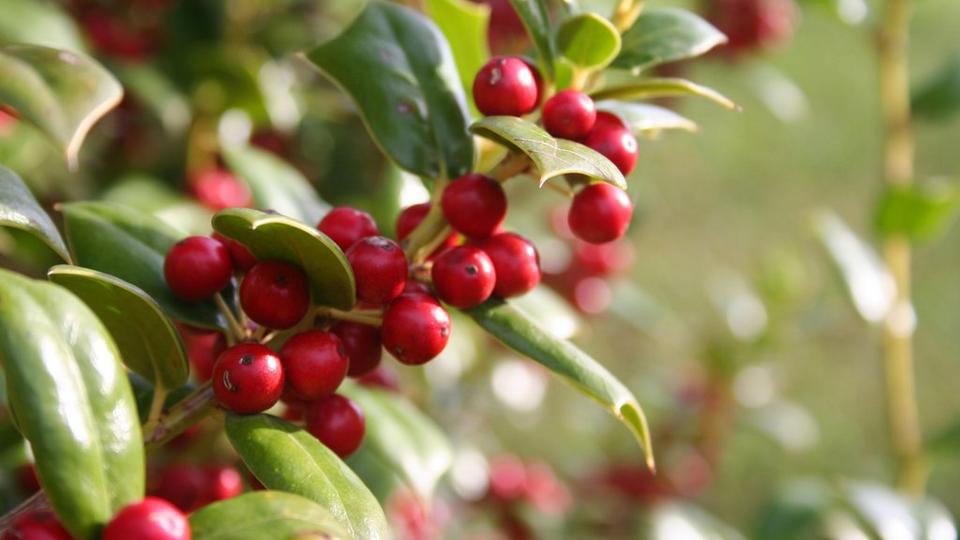
Chinese Holly (Ilex cornuta)
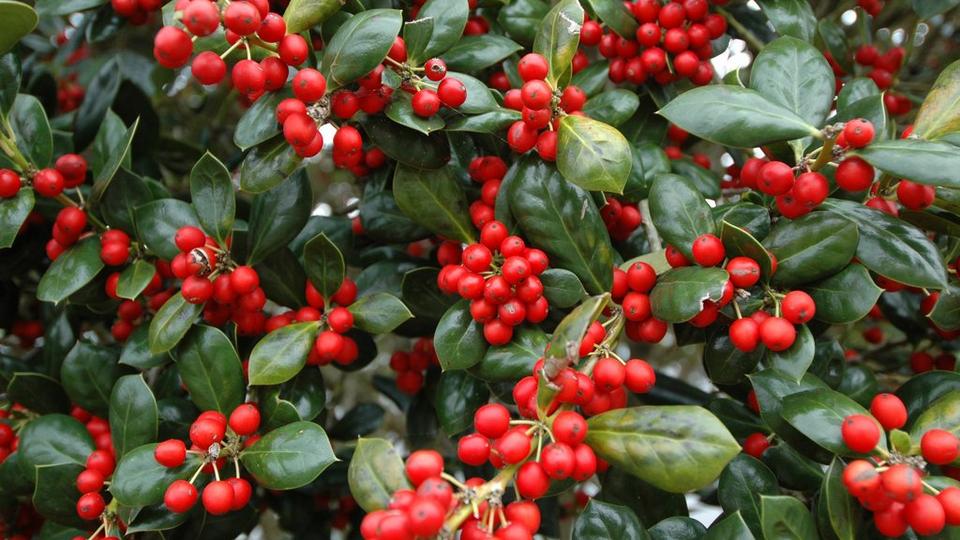
Common Winterberry (Ilex verticillata)
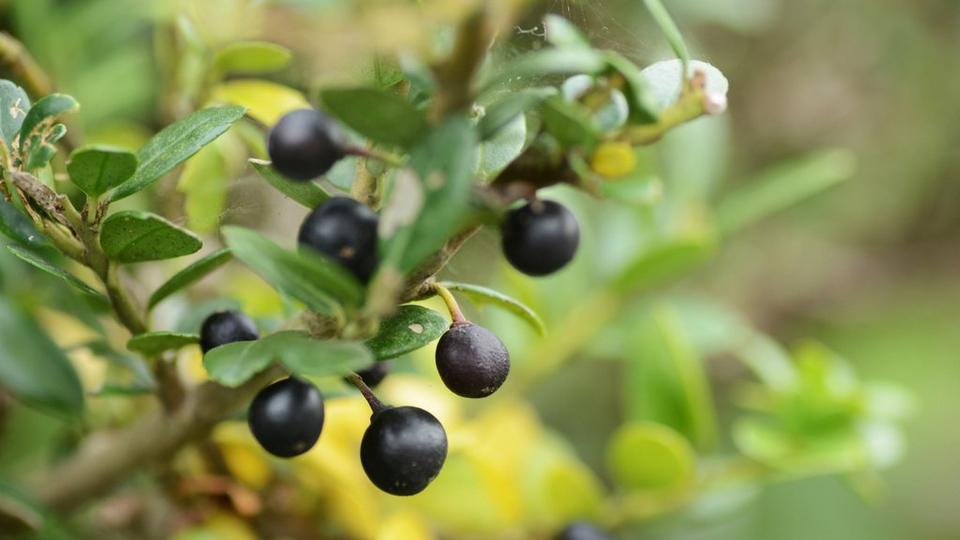
Japenese Holly (Ilex Crenata)
How to care for cut holly
As with most types of foliage, holly will quickly dry out once it’s been cut. To preserve its fresh appearance for as long as possible, you can almost treat holly as you would cut flowers. But it’s important to remember that, as with cut flowers, any fresh greenery will wilt fairly quickly if it’s not kept in water. If you plan to use holly in a Christmas wreath or garland, it’s best to leave making it until a week before Christmas. Here are some other tips for caring for your cut holly.
Trimming and watering
Snip the branches diagonally, ideally under water, gently crush the ends and then put the branches in cool fresh water. If you won’t be immediately making a wreath, garland or display with the holly, store it in a plastic bag at a cool temperature, but not freezing. While waiting to use the holly, ensure it’s away from excessive heat or frost and avoid putting it near fruit.
Can I use an anti-desiccant treatment?
You can spray your holly with an anti-desiccant spray, available from florists, which helps keep in the moisture by sealing the pores of the bark and leaves, creating a protective layer that reduces the chance of excess moisture escaping.
Light, location and humidity for holly
As with most fresh foliage, it needs the right environment to stay fresh for as long as possible. Lights and heat can cause fresh foliage to dry out and wilt quickly. The ideal place for a holly wreath, garland or other types of Christmas display is away from:
- Direct sunlight
- Radiators
- Fireplaces
- Hot lights
- Television
Should I mist my holly display?
To keep your holly display looking nice and fresh for as long as possible, spray it with a fine mist of water every other day.
Common holly FAQs
Unfortunately, this adored festive plant is poisonous to humans and animals. Even consuming just a couple of holly berries can cause severe sickness. Holly should always be kept out of reach of children and pets, and any fallen berries quickly removed.
We may associate it with the winter and Christmas, but most holly plants are evergreen and have attractive dark green foliage all year round.
Most holly bushes grown in the right climate can live for over 75 years. Holly grows best in slightly acidic soil that retains some moisture but also has good drainage. They also prefer an area that gets reasonable sun exposure across the day.
As a cutting, holly tends to last for up to two weeks. However, if you can store it in cool temperatures or water, a holly cutting can last up to three weeks.
Holly wreaths usually last for around four to five weeks when displayed outdoors. If you want to hang up a holly wreath on your front door, leave it until the end of November so it will be as fresh as possible for Christmas.
Holly wreaths put up indoors have a shorter lifespan than those outdoors, usually lasting for one to two weeks. This is because an outdoor holly wreath will be exposed to much cooler temperatures than an indoor wreath.
